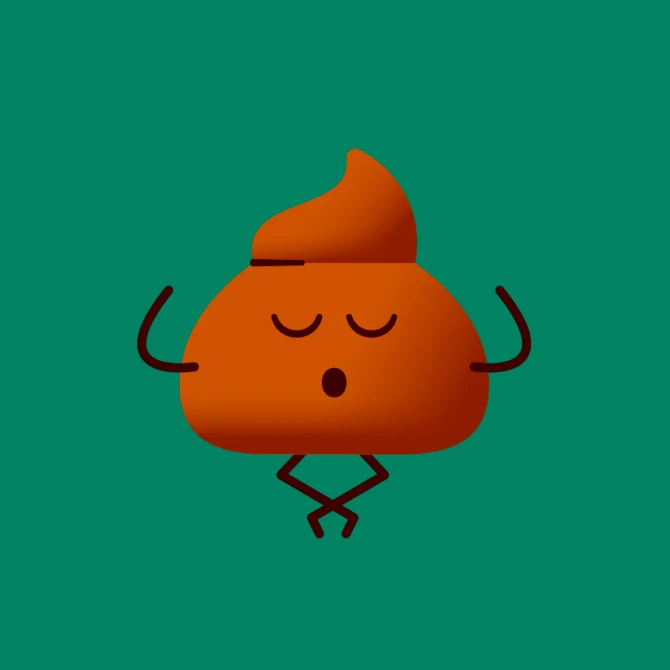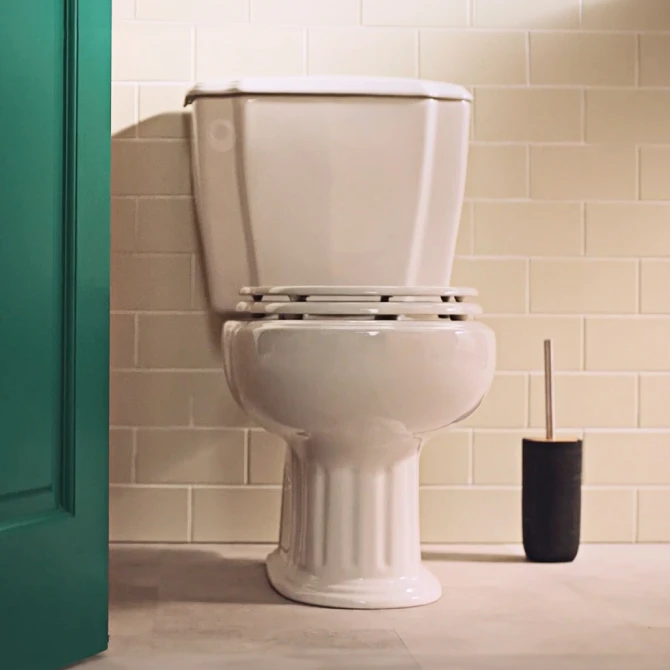
Signs and symptoms of constipation

Hey there! We've all been there - the occasional tummy trouble where things seem to move a little... slower than we'd like. Constipation, while not the most glamorous of topics, is a common roadblock in our digestive journey. But fret not! It's perfectly normal to hit a bump now and again.
Let's explore what your body might be telling you when it feels like traffic in your gut has come to a standstill.
Is your digestive traffic jammed?
If you're counting the days between bathroom breaks on more than one hand, or if the experience feels more like a workout due to tough, dry stools, your body might be waving a 'slow down' sign. Other hints that you're experiencing a digestive detour can include feeling like you've got to plan another pit stop right after you've just had one, or if your tummy feels like it's throwing a bit of a bloated block party.
Constipation Checklist:
Visiting the restroom less than thrice a week
Working hard to pass dry, stubborn stool
Bloating that feels like a balloon and the gassy uninvited guests
That nagging sensation of an incomplete evacuation
If occasional constipation is your only travel buddy, it's usually not a big deal. Fun fact: 80% of people will have a chat with constipation at some point. It's like the world's least exclusive club. But if you notice sudden changes to your bathroom routine that stick around longer than your last vacation, or if the issue becomes a frequent flyer, it might be time to call in a guide (aka your doctor).

Which Dulcolax® is right for you?
Answer few questions about your poop routine and we'll suggest the right product for you.
Why is your digestive journey slowed down?
Imagine your gut is a highway, and your food is taking a leisurely drive through it. When things get sluggish, traffic (stools) starts to pile up, becoming hard and dry, and that's when the honking (discomfort) starts. If you're curious why your internal traffic is crawling, let's peek at the usual suspects:
The usual suspects:
Wisdom Accumulation (Aging)
The older we get, the more time our digestive highway has been in use, and sometimes, it shows.
The Stress Pothole
Our guts are sensitive to stress - they feel the bumps on the road just as much as we do. Remember to take pit stops for rest and activities that help you refuel (like sleep and exercise)
The Stress Pothole
Our guts are sensitive to stress - they feel the bumps on the road just as much as we do. Remember to take pit stops for rest and activities that help you refuel (like sleep and exercise)
Fitness Fuel
A daily 30-minute cruise (exercise) helps keep traffic moving smoothly.
Medication Roadblocks
Sometimes, the pills in your medicine cabinet can put up a detour sign. A chat with your doc can help you find an alternate route.
Hormonal Detours (Pregnancy)
Those baby-on-board hormones plus the extra passenger can slow things down.
Dietary Directions
A lack of hydration stations (water) and fiber-filled fuel can lead to slowdowns. Fruits, veggies, and whole grains are like premium fuel for your gut!
Travel Delays
Changing time zones or routines can cause your digestive system to take a few wrong turns. Stick to your meal and hydration schedule and sneak in some sightseeing on foot to stay on track.
Need a navigator?
Sometimes we need a little extra help to get moving again. That's where Dulcolax® comes in with a suite of products to help you navigate your way to relief, whether you need a quick detour (fast relief) or a more scenic route (overnight or gradual relief).
💡Digestive FAQs: potholes and pit stops
Can constipation be a pain?
Oh, it can be more than just a bother. Apart from the straining workout, it can bring along friends like:
- Tummy aches: Your belly might throw a bit of a tantrum with gas and bloating. Hydration can often be a great peacemaker here.
- Cramping: It's like your bowels are trying to navigate a tight squeeze, which can feel a tad uncomfortable.
- Backaches: Sometimes a traffic jam can cause pressure that radiates to your lower back. Not a joyride.
And if constipation is making you feel under the weather, with symptoms like vomiting or fever, it's time to flag down professional help.
What kind of roadblocks can constipation cause?
- General discomfort: It can make you feel out of sorts and add an unwelcome detour to your day. Dulcolax® can help you take back the wheel.
- Hemorrhoids: Too much straining can lead to these pesky passengers. If you notice them, it's time for a check-up.
Don't let constipation put the brakes on your day. If you've been stuck in a holding pattern, consider reaching for Dulcolax®'s variety of solutions, and let's get you back on the move!
* Works in 30 minutes to 6 hours
Disclaimer:
Partly generated by Gen AI








.webp)

.webp)
.webp)





.webp)